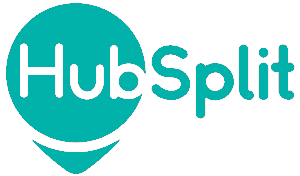How to help stop human trafficking
Become informed about warning signs and the appropriate actions to take if you come across a possible case of human trafficking in your record. We highly recommend that you notify any suspected instances of human trafficking to the hotline managed by Polaris, the National Human Trafficking Hotline. If you’re located outside the U.S., consult the at address the issue of human trafficking in the Global Modern Slavery Directory (GMSD to find international organizations dedicated to tackling human trafficking.
Defining human trafficking
The interpretation of human trafficking might vary based on the country you’re in, but the majority of nations adhere to the criteria set by the United Nations. These criteria encompass three fundamental components:
- The action involved in human trafficking: encompassing the processes like recruiting, transporting, relocating, sheltering, or receiving individuals.
- The methods employed in human trafficking: including threats, physical force, kidnapping, deceit, manipulation, or misuse of authority.
- The intent behind human trafficking: primarily for purposes such as exploiting individuals for sexual trade, other types of sexual exploitation, compulsory work or services, conditions akin to slavery, enforced subservience, or organ extraction.
Signs to look out for
Victims of trafficking frequently find it challenging to disclose their circumstances. Thus, as a Host, recognizing potential warning signs of human trafficking is crucial. Please note, the subsequent indicators are not comprehensive, and their mere presence doesn’t necessarily suggest trafficking:
Signals indicating the presence of force, fraud, or coercion:
- Signs of physical threats or actual violence
- Presence of physical constraints
- Visible bodily harm
- Individual is forced into work conditions differing from what was initially promised during recruitment
- Individual lacks freedom of movement and doesn’t have access to their finances or personal items
- Individual is coerced into using drugs or alcohol by another party.
Indications of exploitation:
Forced Labor:
- Employment of minors
- Evidence of inadequate hygiene, undernourishment, or tiredness
- Employee accommodated by the employer in unsuitable locations (lack of privacy or temporary sleeping setups)
- Employee denied regular breaks
- Worker exposed to hazardous or unsanitary working environments
Sex Trafficking:
- Listing location mentioned in online commercials for sex services
- Observations of many unapproved visitors at inconsistent times
- Overabundance of items related to sexual activities in the listing
- Equipment typically used for commercial video or photo sessions is visible.
Worldwide, an estimated 40.3 million individuals are trapped in modern-day slavery. Out of these, over 4 million might be involved in sex trafficking scenarios, with females, especially young girls, being disproportionately impacted. The clandestine nature of human trafficking means many cases go unreported, making it challenging to gauge its true extent. Although human trafficking affects a broad spectrum of the population, certain risk factors heighten susceptibility to exploitation. These factors include being homeless, displacement due to natural calamities or conflicts, experiences of domestic abuse, instances of sexual assault, and having an undocumented or temporary status.
What to do if you encounter a potential human trafficking situation
You can help stop human trafficking. If you encounter a situation at your listing that could potentially be human trafficking, you can report it to the National Human Trafficking Hotline operated Polaris by calling 1-888-373-7888, texting “BeFree” to 233733, or by live chat at humantraffickinghotline.org/chat. The hotline is available 24/7, toll-free, confidential, and in 200+ languages. The hotline is able to assist with international situations, but you can also contact local organizations through the Global Modern Slavery Directory (GMSD). The Polaris-operated Global Modern Slavery Directory (GMSD) is an interactive, publicly searchable map and database of organizations and agencies across the globe that address the issue of modern slavery and human trafficking. The GMSD includes government agencies, law enforcement agencies, advocacy groups, and organizations that may assist victims of trafficking while addressing related issues, such as labor exploitation, child protection, or domestic violence.
You can also report a potential human trafficking incident to Hubsplit . Hubsplit ’s Safety Center is an in-app one-stop safety hub with key resources. You can reach Hubsplit ’s Urgent Support Line through the Safety Center, as well as local emergency services wherever you are in the world.

